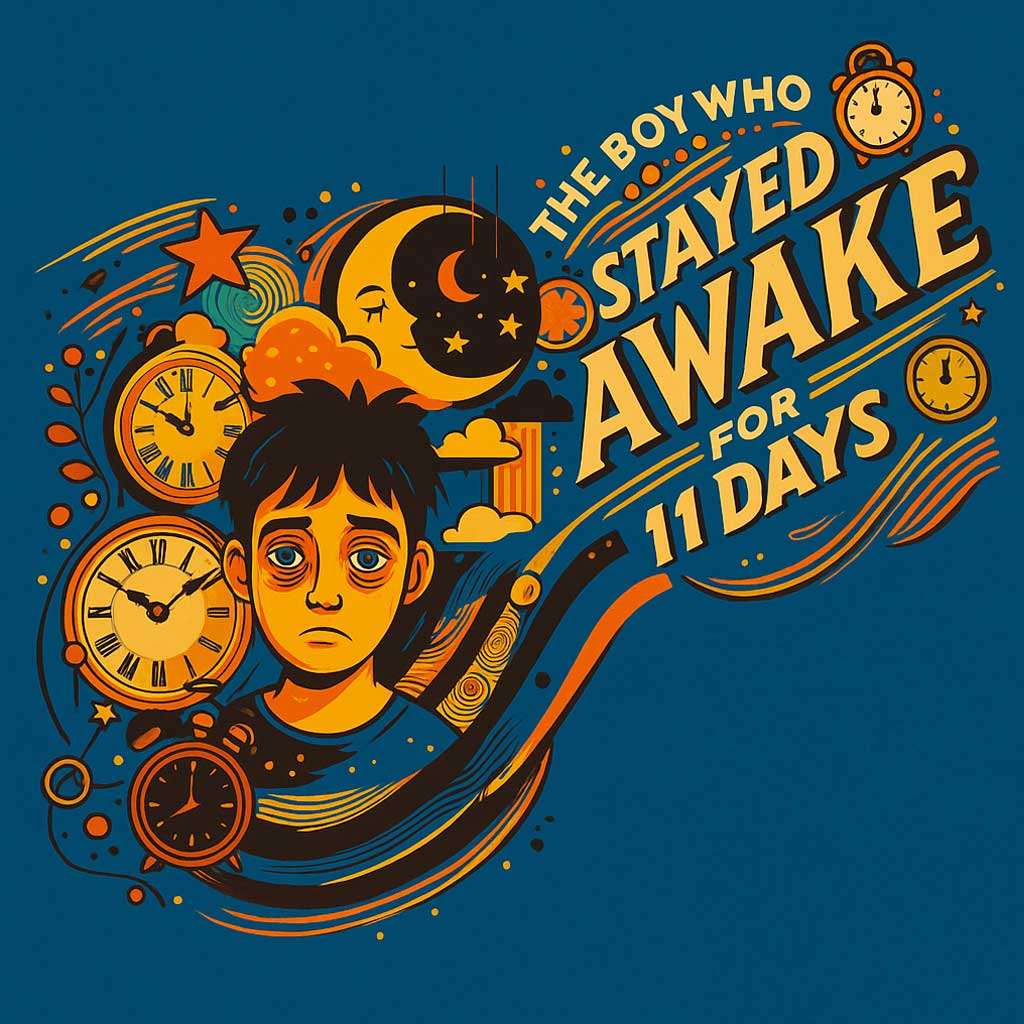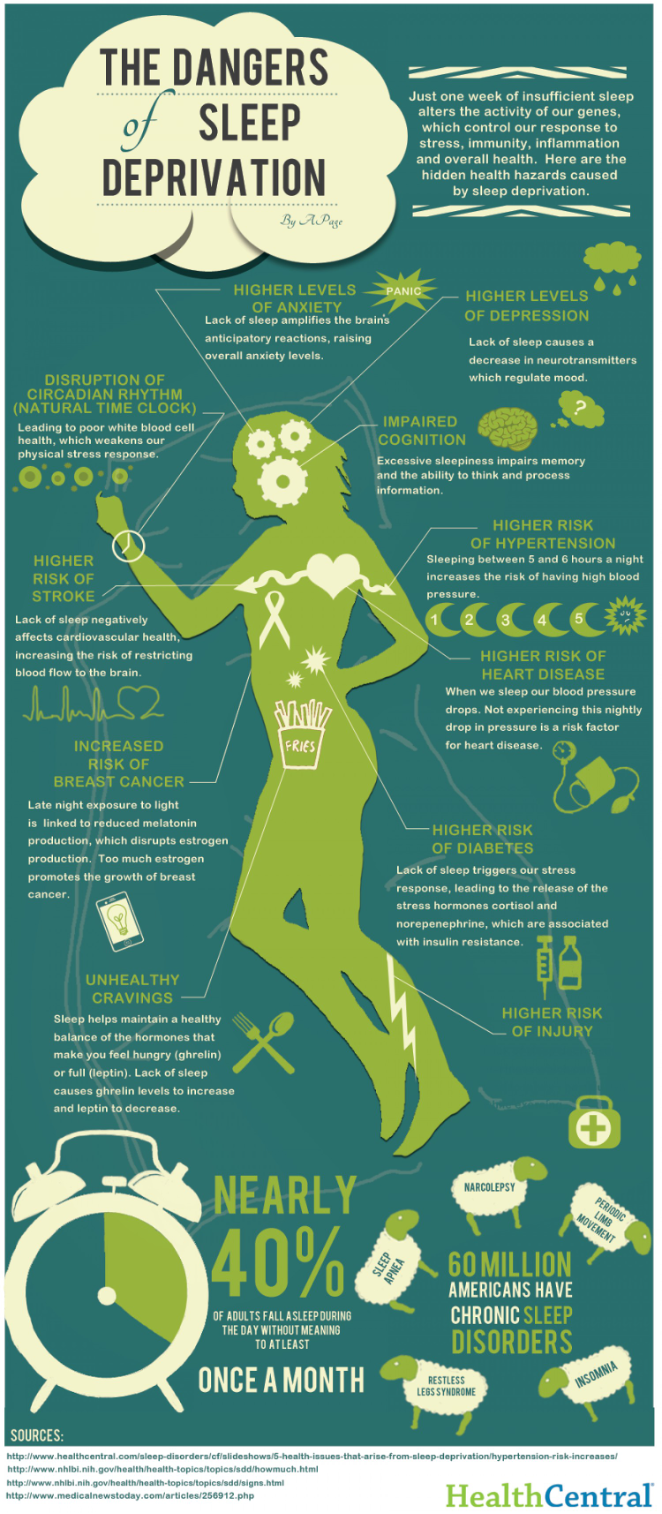
The boy who stayed awake for 11 days
In December 1963, two boys hit upon an idea for a school Science project – stay awake for as long as possible. The project ended on 8 January 1964. 17-year-old Randy Gardner had managed to stay awake for 11 days and 25 minutes.
After that, Gardner was whisked to a hospital where researchers attached electrodes to his head to monitor his brain waves before he went to sleep. He slept for only 14 hours. From the analysis of his brainwaves, doctors derived that “his brain had been catnapping the entire time… parts of it would be asleep, parts of it would be awake”.
Generally, Gardner seemed to show no ill effects from his 11 days of being awake. However, in 2007, he revealed that he had been experiencing insomnia over the years which he attributed to the Science project that he did in his teenage years. Fortunately, he was able to regain his ability to sleep eventually, but only for about six hours a night.
A number of people tried to break Gardner’s record for the longest time anyone had stayed awake in the following years – but the Guinness Book of Records stopped certifying attempts, believing it could be dangerous to people’s health.
According to scientific research, sleep loss, or even poor-quality sleep can lead to decreased productivity, increased errors at the workplace, and accidents that will cost both lives and resources.
What are the effects of sleep deprivation?
Read the infographic below to learn more about the dangers of sleep deprivation.
How to get the sleep that you need

Whether you’re looking to resolve a specific sleep problem, or just want to feel more productive, mentally sharp, and emotionally balanced during the day, experiment with the following sleep tips to see which ones work best for you:
- Rule out medical causes for your sleep problems: A sleep disturbance may be a symptom of a physical or mental health issue, or a side-effect of certain medications.
- Stick to a regular sleep schedule: Support your biological clock by going to bed and getting up at the same time every day, including weekends.
- Get regular exercise: Regular exercise can reduce the symptoms of many sleep disorders and problems. Aim for at least 30 minutes of physical activity as often as you can—but don’t do it too close to bedtime.
- Be smart about what you eat and drink: Caffeine, alcohol, and sugary foods can all disrupt your sleep, as can eating heavy meals or drinking lots of fluids too close to bedtime.
- Get help with stress management: If the stress of managing work, family, or school is keeping you awake at night, learning how to handle stress in a productive way can help you sleep better at night.
- Improve your sleep environment: Keep your bedroom dark, quiet, and cool, and reserve your bed for just sleeping.
- Develop a relaxing bedtime routine: Avoid looking at screens, studying, and engaging in stressful conversations late at night. Instead, wind down and calm your mind by taking a warm bath, reading by a dim light, or practising a relaxation technique to prepare for sleep.
- Postpone worrying: If you wake during the night feeling anxious about something, make a brief note of it on paper and postpone worrying about it until the next day when it will be easier to resolve.
How can you manage your time better so that you can enjoy sufficient rest?
Sources:
https://www.bbc.com/future/article/20180118-the-boy-who-stayed-awake-for-11-days
https://www.healthcentral.com/article/infographic-the-dangers-of-sleep-deprivation?ap=831
Suggested Videos:


















